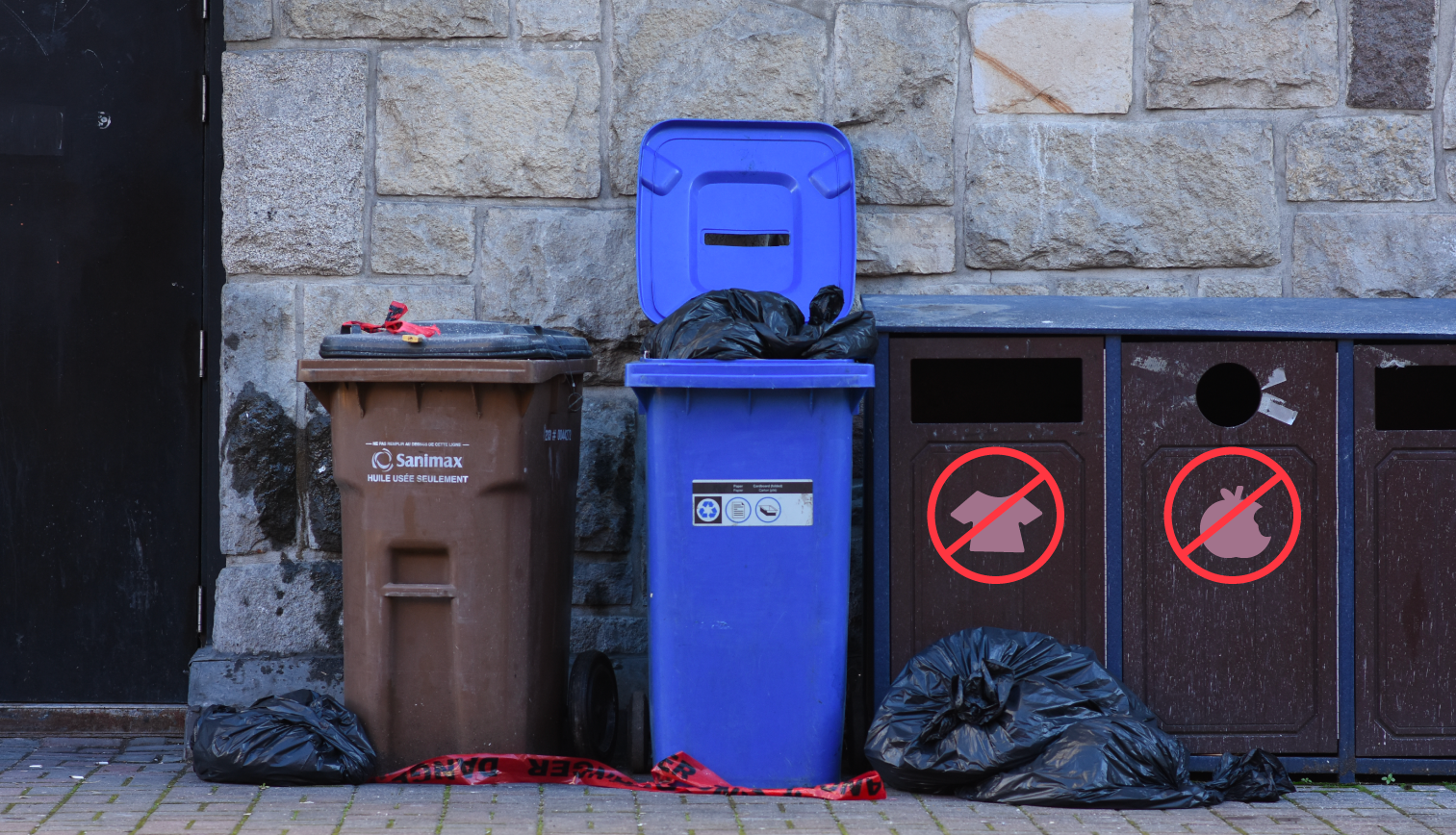As the city of Montreal announced its new plans last week to tackle food and clothes waste, Concordia is already taking steps to do just that.
In the city’s proposal, Mayor Valerie Plante and her team aim to ban stores from dumping unsold clothes and food, in an attempt to become zero waste by 2030. A plan released on Oct. 17 lays out their goal to reduce food waste by 50 per cent in five years, and reduce Montreal’s commercial textile waste.
According to Faisal Shennib, an environmental specialist who is managing Zero Waste Concordia (ZWC), they are already taking steps to reduce food waste.
“We’ve always aimed to reduce waste from landfills as much as possible,” said Shennib. “Organics are the top contributors of waste from our institutions, and they release a lot of methane when they go into the landfills, so it’s an easy target for us.”
ZWC plans to make compost bins accessible in each food consumption area at Concordia, and wants to figure out a program to process the organics that are composted in a sustainable way.
“But then what we realized is that we weren’t connecting usable food waste to people who could use it,” said Shennib.
Their pilot project, tentatively named Zero Waste Concordia’s Food Donation Program, was launched this September. It aims to get restaurants and cafes renting space at the university to move toward eliminating their food waste.
The project has three phases. The first is to educate the tenants, such as Subway, Java U and, Jugo Juice, about basic sustainability, like recycling and composting. The second phase is planned to launch next semester and aims to formally give them the opportunity to partner with organizations like La Tablée des Chefs. Their food recovery program redistributes surplus food to community organizations that provide food to the homeless. The third is to encourage tenants to rethink their food packaging and use of plastics in their businesses.
ZWC already informally contacted some tenants for the project, and most either expressed interest or are already involved in another food redistribution charity. Concordia as an institution already has a contract with La Tablée des Chefs. ZWC is also trying to get confirmation from the university to allow their tenants to be covered under their agreement.
“They use our landfill container at the end of the day,” said Shennib. “They actually throw out all that food, potentially, unless they have their own program.”
The project is also working to reduce food waste from university events by working with Hospitality Concordia, who organizes events at the institution. Hospitality Concordia already has a partnership with Tablée des Chefs but was targeting larger events. ZWC wants to target smaller, student-run events that may also be wasting food.
“There’s also a smaller ecosystem we want to build,” continued Shennib. “Say a student club serves food to 10 people, and then they have a lot of cookies leftover and nobody wants to take it from the group- it shouldn’t have to go to waste either. We’re trying to collaborate with health food co-op Frigo Vert to potentially use them as a place where students can bring them their leftovers, and they can offer them to the community.”
School Stores: Unsold Clothes
Melanie Burnett, the general manager for Concordia Stores, said they rarely ever throw away clothes because they almost always sell their apparel. Burnett said they have sales to sell unsold clothes and that they also recently donated their apparel to a charity.
She explained the only time they throw away clothes from their stores is if they are damaged and unsellable.
Concordia Stores also have a partnership with Concordia University’s Centre for Creative Reuse (CUCCR). Burnett said they have donated some unsold art supplies to CUCCR for creative purposes in the past, and have given them wooden shelves the Stores were no longer using.
“By fixing ambitious targets and giving ourselves the means to attain them, our city will deploy the necessary efforts to make its ecological transition more concrete,” said executive committee member Laurence Lavigne Lalonde. Lalonde is responsible for the ecological transition and resilience of l’Espace pour la vie et de l’agriculture urbaine.
Concordia has several other initiatives aiming to reduce food waste, such as the Dish Project, Waste Not Want Not and the Concordia Food Coalition.
Feature photo by Laurence B.D.




